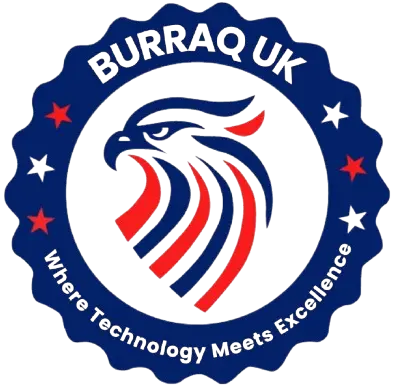ISO 37001 Anti-Bribery Management Systems Course
ISO 37001 is an international standard developed by the International Organization for Standardization (ISO) that provides a framework for organizations to prevent, detect, and respond to bribery and corruption.It is designed to support organizations in establishing, implementing, maintaining, and improving an Anti-Bribery Management System (ABMS), helping to promote an ethical business culture and reduce the risk of legal and reputational damage.

Aim of ISO 37001 Anti-Bribery Management Systems
The aim of ISO 37001 is to provide organizations with a comprehensive framework to establish, implement, maintain, and improve an effective Anti-Bribery Management System (ABMS) that:
- Prevents, detects, and addresses bribery in all forms, whether direct or indirect, within the organization and its business relationships.
- Promotes a culture of integrity, transparency, and ethical conduct at all levels of the organization.
- Ensures compliance with applicable anti-bribery laws, regulations, and voluntary commitments.
Minimizes the risk of legal penalties, financial loss, and reputational damage resulting from bribery incidents.
Course Overview
ISO 37001 Anti-Bribery Management Systems Course
Total Modules 6
Training Credits 18
Directed Learning Hours (DLH) 120
Course Code BUK1939
- Corporate organizations across all industries seeking to prevent bribery risks
- Government agencies and public sector bodies aiming to enhance transparency and accountability
- Non-profit organizations committed to ethical conduct
- Small, medium, and large enterprises looking to strengthen governance and compliance
- Legal, compliance, and risk management professionals responsible for anti-bribery programs
- Internal auditors, compliance officers, and quality managers
- Consultants and trainers specializing in corporate governance and ethics
- Supply chain and procurement managers managing third-party relationships
| Course Code | Curriculum Title | Credit | DLH |
|---|---|---|---|
| BUK1939-1 | Introduction to ISO 37001 and Anti-Bribery Concepts | 3 | 20 |
| BUK1939-2 | Structure and Requirements of ISO 37001 | 3 | 20 |
| BUK1939-3 | Risk Assessment and Due Diligence | 3 | 20 |
| BUK1939-4 | Anti-Bribery Policies and Procedures | 3 | 20 |
| BUK1939-5 | Training, Communication, and Awareness | 3 | 20 |
| BUK1939-6 | Monitoring, Auditing, and Performance Evaluation | 3 | 20 |
Module 1: Introduction to ISO 37001 and Anti-Bribery Concepts
- Overview of ISO 37001
- Importance of anti-bribery management
- Definitions and key terms (bribery, corruption, facilitation payments, etc.)
- Global context and challenges of bribery
Module 2: Structure and Requirements of ISO 37001
- Understanding the clauses of ISO 37001
- Context of the organization and leadership commitment
- Planning and support requirements
- Operational controls and procedures
Module 3: Risk Assessment and Due Diligence
- Identifying bribery risks internally and externally
- Conducting bribery risk assessments
- Due diligence for business associates and third parties
- Monitoring and reviewing risks
Module 4: Anti-Bribery Policies and Procedures
- Developing and implementing anti-bribery policies
- Code of conduct and ethical guidelines
- Gifts, hospitality, and expenses management
- Whistleblowing and reporting mechanism
Module 5: Training, Communication, and Awareness
- Raising awareness across the organization
- Training programs for employees and management
- Internal and external communication strategies
Module 6: Monitoring, Auditing, and Performance Evaluation
- Internal audits of the anti-bribery management system
- Key performance indicators (KPIs) and metrics
- Incident investigation and corrective actions
- Management review and continual improvement
Module 7: Legal Compliance and Enforcement
- Overview of relevant anti-bribery laws and regulations
- Consequences of non-compliance
- Roles and responsibilities of compliance officers and legal teams
Module 8: Certification Process and Maintaining Compliance
- Steps to achieve ISO 37001 certification
- Preparing for audits and assessments
- Maintaining and improving the anti-bribery management system
- Compliance Officers and Managers
- Legal and Regulatory Professionals
- Risk Management Professionals
- Internal Auditors and Quality Managers
- Corporate Governance and Ethics Officers
- Senior Management and Executives responsible for governance
- Procurement and Supply Chain Managers
- Human Resources Professionals managing policies and training
- Consultants and Trainers specializing in compliance and ethics
- Public Sector Officials and Government Employees involved in anti-corruption initiatives
- Non-Profit and NGO Staff involved in governance and transparency
- All Modules within this qualification are assessed internally by the approved training Centre and externally verified by BURRAQ UK. The program uses a criterion-referenced assessment approach to ensure that learners successfully meet all required learning outcomes.
- A Pass in any unit is granted only when the learner submits valid, reliable, and authentic evidence that demonstrates achievement of the assessment criteria. The Assessor is responsible for reviewing this evidence and confirming that the learner has attained the expected standard.
